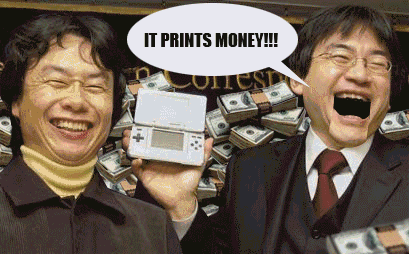I came in late to the start of today’s first lesson, where we learnt about the history of video games. It was a fun lesson and I especially liked going over the video below, after seeing it last year and it reminded me how Sony can drop the ball like the best of them.
Sony’s E3 2006 conference wasn’t just perceived by many as a flop, it enriched gaming culture with so many great meme’s.
Later into the lesson, the tutor expressed two opinions which I disagree with, on the XBOX One’s game sharing feature and the role of retailers in the industry.
The way the tutor explained the – now axed in its original form – XBOX One game sharing functionality to the class, was with an example of him and his friends using it to purchase one copy of a game, sharing it between them and then play together. This wasn’t how I understood it and I don’t see Microsoft or any company doing it this way.

I don’t expect any developer, publisher or console manufacturer to allow multiple copies of a game to be authorised from one transaction/customer. Case in point, the ‘Online-Pass‘. I can see digital game sharing being an important part of our gaming future, just not in the way he was thinking or at least explaining it to us.
His second opinion was that retailers take a large cut of the video game without actually doing anything more than handing copies over to customers. I can understand his opinion when but I also understand that the problems are much bigger than that. While it may not be fair for the retailers to take such a large cut of the profit from games, while at the same time undercutting the developer by promoting and running the second-hand game market; it is undeniable that the video game industry still depends on the retailers to be so profitable.
Let’s face it, there’s a lot goes into the success of video games and one of the key players, like with any product, is the delivery medium. True, without the store’s the games would still sell and we may even have better pricing on console games if e-tailers were competing with the digital stores offered by the console manufacturers; just look at the super competitive PC space! What I find false is the idea that brick and mortar retailers are providing no value to the developer or gamer and are simply a middleman taking a greedy slice of your profits. Their percentage cut does still – in this day and age – give you some form of value, even if you can’t perceive it from where you stand.

I see retailers to be connected to the success of your games, even if they are more removed from developers than the publishers are. They are the final link to the customer, they buy the stock (first and foremost), they deal with the supply, demand and logistics of your operation. Hopefully, this culminates in giving your customers more choice and competitive prices. True, some of their practices, like getting a customer to buy a used game over a new copy, are harming the developers’ bottom line, but there are certainly creative ways for the publishers and developers to counterbalance this. I refuse to believe the best people can come up with is collectors editions, online passes and premium extra’s. Not that I’m against any of those.
The way I see it, it’s down to you or your company to strike the best deal you/they can with the retailers, so you walk away with the best slice of profit you can get. You have to figure out how much your product is worth and when you can raise/lower the price and adjust your take from that; as there comes a point when people aren’t going to be buying your product, simply because they are not interested, no matter how cheap you can make your product or how good it is commercially.
It’s always best to look at the bigger picture, because the world isn’t anywhere near ready for a digital-only games industry, even if we wish it so.

